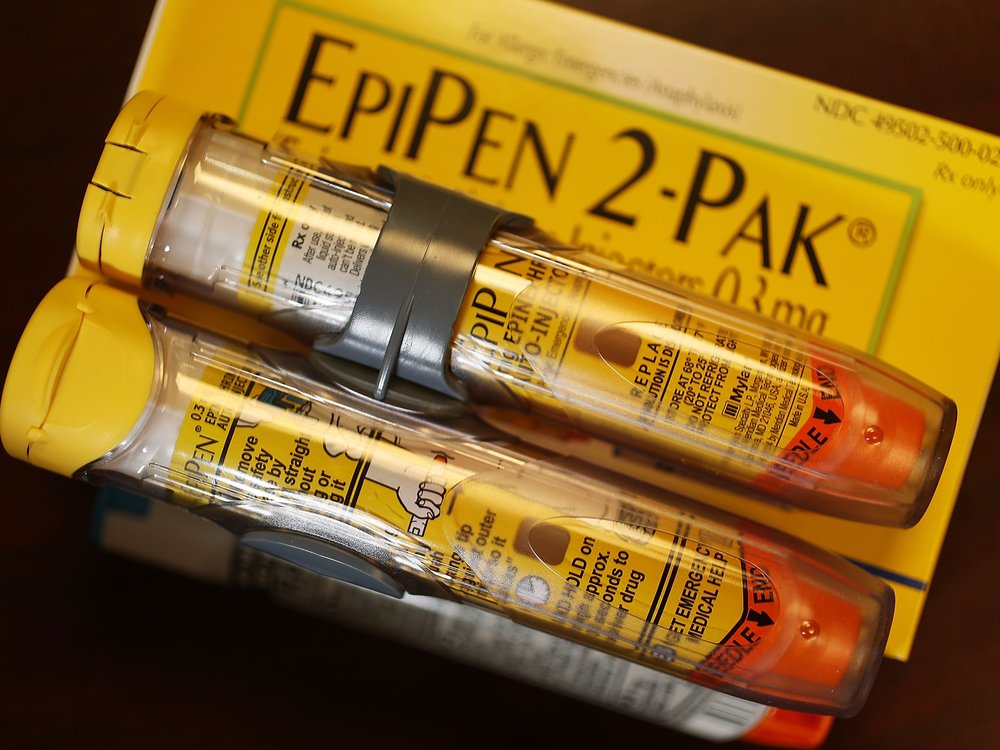Kids Discover That EpiPens May Not Work in Space
After returning from space, the life-saving drug epinephrine had partially changed into poisonous benzoic acid

A group of elementary school students from Canada made a groundbreaking discovery while working on a school project: EpiPens may not work in space.
“It was pretty cool,” student Hannah Thomson tells Touria Izri of Global News. “NASA didn’t know.”
EpiPens, the auto-injectors that deliver life-saving epinephrine during a severe allergic reaction, might become ineffective or even poisonous when in space, the students found. Epinephrine, also called adrenaline, opens up airways, reduces swelling and itching and helps maintain heart function and blood pressure, effectively reversing the effects of anaphylactic shock, per the Asthma & Allergy Network.
The 9- to 12-year-old children, who are part of St. Brother André Elementary School’s Program for Gifted Learners, were curious how cosmic radiation would affect the molecular structure of epinephrine. As part of a NASA initiative called “Cubes in Space,” which launches science experiments conceived by students, they launched samples of both pure epinephrine and EpiPen solution—one dose of epinephrine in a sterile solution. They sent these samples on a high-altitude balloon and on a rocket, per a statement from the University of Ottawa.
Because the cubes are only 4 by 4 centimeters, the students couldn’t send an entire EpiPen beyond Earth’s atmosphere. Instead, they had to come up with a way to inject the solution from the device into a vial, student Raina Smith tells the Canadian Broadcasting Corporation (CBC). EpiPens require a hard surface to press into—usually human skin. At first, the students thought an orange peel might do the trick, but after consulting with Paul Mayer, a chemist at the University of Ottawa, they decided that would create “pretty messy science with all the juices,” Smith tells CBC. The kids ended up injecting the solution into the vial through a hole in a hard sponge.
The samples were analyzed in a lab at the university before and after returning to Earth.
“The students were excited, and we ran with it,” their teacher, Deborah Quail-Blier, tells Dave Charbonneau of CTV News. “The results were actually quite shocking.”
The team found that the pure epinephrine samples only returned 87 percent pure—the other 13 percent had turned into poisonous benzoic acid derivatives. And no epinephrine was found in the EpiPen solution samples, which raises questions about its efficacy in space, says Mayer, who helped analyze the samples, in the statement.
Mayer tells CBC he was skeptical at first that the samples would show any signs of decomposition, but he was blown away by the “dramatic” results.
“I thought it was brilliant,” he tells Global News. “The first part of doing science is asking the right questions, and they asked a fantastic question.”
The students’ findings could have real-world implications for space travel and the safety of astronauts. The kids are already anticipating the colonization of Mars and thinking about how settlers there might need epinephrine for their health, per CBC.
The students will travel to Virginia in June to present their findings to NASA, and they plan to repeat their experiment to see if they obtain the same results. They are also working on designing a capsule to protect the EpiPen solution in space, per the statement.
“You feel like you’re making a real change,” student Benjamin Sum, who wants to build rockets when he grows up, tells Global News. “A lot of the time it feels like it’s just adults. But kids can actually be involved.”

